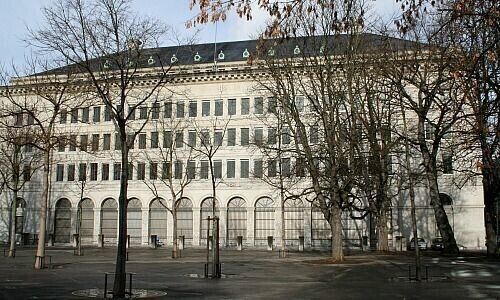Swiss monetary policy is in a challenging phase in the face of weakening economic activity. SNB President Jordan hinted at further rate hikes ahead during an event with economists in Bern.
The Swiss National Bank (SNB) appears to be preparing for further interest rate hikes to fight inflation, having already raised rates twice this year to the current level of 0.5 percent.
SNB President Thomas Jordan reiterated Friday in Bern he would take all necessary measures to bring inflation back within the target range of 0 to 2 percent. Current monetary policy is not restrictive enough to bring inflation back into the stability window in the medium term, he said. In addition, energy shortages risk driving up inflation.
December Rate Hike
The central bank raised borrowing costs by 125 basis points to 0.5 percent so far this year and the market pricing in a 65 percent probability of a 50 basis hike at the SNB's meeting on December 15. A 35 percent probability is priced in for a 25 basis point increase, according to a «Reuters» story.
While Swiss consumer inflation is higher than usual, the SNB President, nevertheless considers long-term inflation expectations to be quite stable, Jordan said at the inaugural «The SNB and is Watchers» event at the University of Bern. In his view, it means confidence in the SNB is quite high.
Inflation History Lesson
Consumer inflation moderated to 3.0 percent in October from 3.3 percent in September but remains high by Swiss standards. The further inflation in a country is above the price stability target, the more costly it is to bring it back down, Jordan said. Therefore, a rapid and effective response is needed to prevent an inflationary environment from becoming entrenched, he said.
Switzerland experienced this in the 1970s and 1980s and again in the early 1990s. Inflation between 4 percent and 6 percent is costly to contain, according to Jordan. In the inflation trend, so-called second-round effects would have to be prevented. For the SNB, price stability is achieved when inflation rates are below 2 percent and positive.
Reduction of Currency Portfolio
To prevent the Swiss currency from appreciating, the SNB introduced negative interest rates a few years ago and carried out market interventions worth billions, inflating its balance sheet. Since tightening monetary policy in the middle of the year, the SNB has now been reducing its foreign exchange portfolio again.
Jordan explained that since 2020, the SNB has responded to inflationary pressures first with foreign exchange interventions and then with interest rate hikes. The institution considers both channels as legitimate instruments for implementing its monetary policy, he said.
Volatile Imported Inflation
SNB Economic Director Carlos Lenz pointed to a strong appreciation at the beginning of the pandemic, which was absorbed by extensive foreign exchange interventions. The SNB had to monitor the exchange rate, he said, because the franc was seen by many as a safe haven, and imported inflation was more volatile than domestic inflation in Switzerland.



































